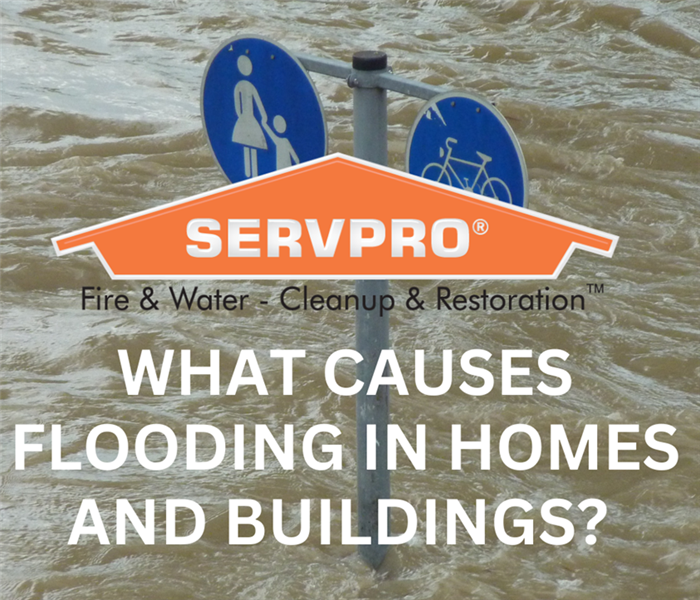What Causes Flooding in homes and buildings?
2/15/2023 (Permalink)
Flooding is a natural disaster that occurs when an area is overwhelmed by water, either from heavy rainfall or rising bodies of water. It can cause significant damage.
Causes of Flooding
Flooding can be caused by a variety of factors, including natural events and human activities. The most common natural cause of the flooding is heavy rainfall, particularly during prolonged periods of wet weather. This can lead to rivers and streams overflowing their banks, and low-lying areas becoming flooded.
Flooding can also be caused by rising sea levels, as well as coastal storms and hurricanes. These events can cause significant damage to coastal communities, particularly those in low-lying areas.
Human activities can also contribute to flooding. For example, the construction of buildings and other infrastructure can alter the natural flow of water, leading to increased flooding. Deforestation and other land use changes can also contribute to flooding, as they reduce the ability of soil to absorb water.
Impacts of Flooding
Flooding can have significant impacts on individuals, communities, and economies. The most immediate impact is damage to homes, businesses, and infrastructure, such as roads and bridges. This can result in the displacement of residents, loss of livelihoods, and disruption of essential services.
Flooding can also have long-term impacts on the environment. For example, it can lead to soil erosion, which can reduce the fertility of agricultural land. It can also lead to water pollution, as floodwaters can carry contaminants into rivers and other bodies of water.
Finally, flooding can have significant economic impacts. In addition to the direct costs of repairing damage to infrastructure and homes, flooding can also disrupt supply chains and reduce economic activity in affected areas.
Measures to Mitigate the Effects of Flooding
There are a number of measures that can be taken to mitigate the effects of flooding. One approach is to implement natural solutions, such as restoring wetlands and other natural features that help to absorb and slow down floodwaters. This can help to reduce the impact of flooding on communities and the environment.
Another approach is to implement engineered solutions, such as building flood protection infrastructure like levees, flood walls, and stormwater management systems. These measures can help to prevent flooding in the first place, or to reduce the impact of flooding when it does occur.
Finally, it is important to ensure that communities are prepared for flooding. This can involve measures such as developing early warning systems, establishing emergency shelters, and educating residents on how to prepare for and respond to flooding events.
By understanding the causes and impacts of flooding, and implementing measures to mitigate its effects, we can work to protect our communities and reduce the impact of this devastating natural event.
SERVPRO of Foxborough is your premier choice for fire damage and restoration. Our teams are ready to respond 24 hours a week, any day of the year. When you bring us on the job our team of licensed contractors and certified technicians will work collaboratively with you throughout the duration of the project. They will keep you updated on the project's status and ensure that your expectations are met. We will help you to move forward and make it “Like it never even happened” for all of your fire damage.




 24/7 Emergency Service
24/7 Emergency Service
